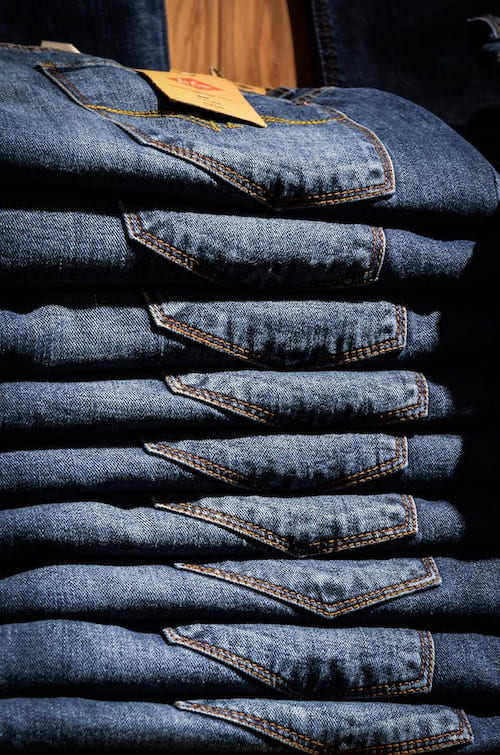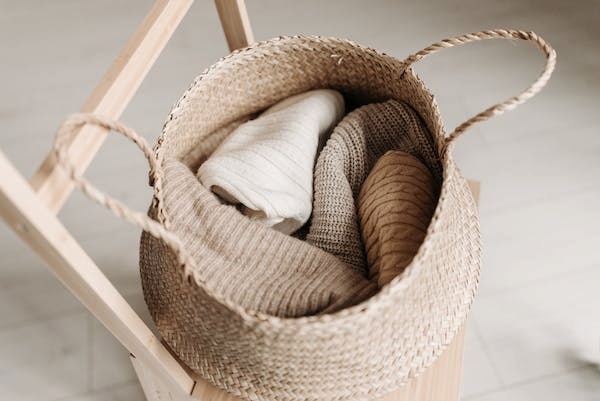Antimicrobial fabrics have been getting more popular since the beginning of the COVID-19 pandemic, with many brands releasing garments impregnated with antimicrobial chemicals to protect wearers from viral infections. But can wearing clothes made with antimicrobial fabric really keep you from getting sick?
Maybe, maybe not – it really depends on the specific pathogen you encounter and what your clothes are treated with. Antimicrobial clothes might not be the best protection against COVID-19, but a mask made with antimicrobial fabric could help protect you. Antimicrobial fabrics can also be used to make clothes that resist odors and last longer, too.
Antimicrobial Treatments for Fabric
People have been using antimicrobial treatments on fabric going all the way back to the ancient Egyptians, who used antimicrobial spices and herbs to treat the fabric they used to wrap mummies. These days, fabrics are treated with metal and metal oxide nanoparticles and macroparticles. Metals like silver, zinc, gold, tin, and copper are used to coat fabrics and give them antimicrobial properties. Natural compounds extracted from plants and animal products like honey are also used to treat fabrics. Nitrogen plasma treatments and halogen treatments have also been found to be effective at protecting surfaces from bacteria and other microbes.
How Antimicrobial Fabrics Kill Pathogens
Most antimicrobial fabric treatments coat the outside of the fabric – many are chemically bonded to the fabric so they remain infused in the fibers for at least 20 washes. Some treatments are the leaching type, which create a zone of exclusion around the fabric that keeps microorganisms at bay. Others are the bonded or non-leaching type, where the fibers themselves are hostile to microbes. Antimicrobial properties tend to last longer in the non-leaching type fabrics.
Antimicrobial textiles usually kill viruses by disrupting or damaging the lipid coating on the exterior of the virus. The damage will mean the virus can’t infect a host or replicate. Antimicrobial fabrics would be effective at stopping a lipid-encapsulated virus like COVID-19, but experts say people just aren’t likely to catch COVID-19 from their clothes. You’re much more likely to spread and catch COVID-19 by not wearing a mask.
A mask made from antimicrobial fabric, on the other hand, could provide an extra layer of protection against infected airborne droplets that could land on the mask.
Bacteria and fungi are killed on contact with most antimicrobial fabrics, though, to be fair, it’s not instantaneous – it can take a few minutes of contact. Antimicrobial textile treatments like fluoroquinolone and eugenol have been found to be particularly effective at killing bacteria and preventing the growth of biofilm. The number of bacteria on a surface can double every four to 20 minutes, so contamination with just a few bacteria could lead to a sizable bacteria colony and a health risk in pretty short order.

Why Choose Antimicrobial Fabrics
Antimicrobial fabrics may be able to protect you from viruses, bacteria, and fungi, by killing these microbes or at least slowing their growth. A pair of jeans made with antimicrobial denim may or may not protect you from COVID-19, but it will definitely last longer and you won’t need to wash it as often.
The textiles in our clothes rub up against our skin all day, absorbing moisture and sebum, or skin oils. The sebum that rubs off on our clothes provides a delicious substrate for bacteria colonies to grow. The moisture of our sweat on fabric can provide an environment amenable to fungal growth.
Bacteria and fungi growing on your clothes can make them smell bad, even if the colonization is invisible to the naked eye.
When you work up a stink during a workout, for example, the body odor smell is actually the byproduct of bacteria on your skin feeding on your sweat. Antimicrobial workout clothes can control bacterial growth and hence the smell it generates.
That means your clothes won’t need to be washed as often, because they won’t smell as bad. Clothes that see heavy use, like activewear, won’t develop that permanent stench that polyester and other synthetic fabrics often develop due to bacteria buildup.
You’ll save money on water and electricity, your clothes will last longer because they’ll be getting less wear and tear in the washing machine, and you’ll feel more confident, especially in exercise classes.
Antimicrobial fabrics have a role to play in protecting you from infectious diseases. They can kill viruses, bacteria, and fungi that you come into contact with, so it doesn’t make you sick – and antimicrobial textiles can last longer, too.
Read Also
- The Role of Ingredients in Your Skincare: What to Look ForSkincare works best when you understand what goes into the products you use daily. Ingredients form the foundation of every formula and determine how the skin reacts over time. Each cream, cleanser, or serum has its own role, determined by its ingredients. Learning what to look for helps you pick products that help skin and… Read more: The Role of Ingredients in Your Skincare: What to Look For
- Your Guide to Finding a Trusted DentistChoosing the right dentist in Sandgate or your area is crucial for maintaining good oral health and achieving a confident smile. With countless dental practices to choose from, patients may find the task daunting. Data from the American Dental Association indicates that there are over 200,000 practicing dentists in the United States, highlighting the importance… Read more: Your Guide to Finding a Trusted Dentist
- Achieving a Defined, Balanced Facial Contour in SingaporeA well-defined jawline and a gently tapered lower face — commonly referred to as a V-shaped face — is a look many people aspire to. In Singapore’s beauty and aesthetic scene, treatments that help refine facial contours have grown in popularity as more individuals seek subtle, natural enhancements that boost confidence and balance facial features.… Read more: Achieving a Defined, Balanced Facial Contour in Singapore
- The Wellness Blueprint: How Your DNA Holds the AnswerGenetic testing is revolutionizing preventive healthcare by offering insights into individual health risks. By analyzing DNA, these tests provide a personalized health blueprint that can guide lifestyle and medical decisions. This approach, often referred to as DNA wellness testing, helps to optimize health naturally and prevent potential diseases. In recent years, genetic testing has become… Read more: The Wellness Blueprint: How Your DNA Holds the Answer
- Exploring the Benefits of Infusion Therapy in OKC: The Ultimate GuideUnderstanding Infusion Therapy: A Deep Dive into Its Purpose and Process What exactly is Infusion Therapy? Infusion therapy is an advanced medical treatment that delivers medication and nutrients directly into the bloodstream through a vein, typically via an IV (intravenous) line. This method is particularly beneficial for patients who require a concentrated dose of medication,… Read more: Exploring the Benefits of Infusion Therapy in OKC: The Ultimate Guide






